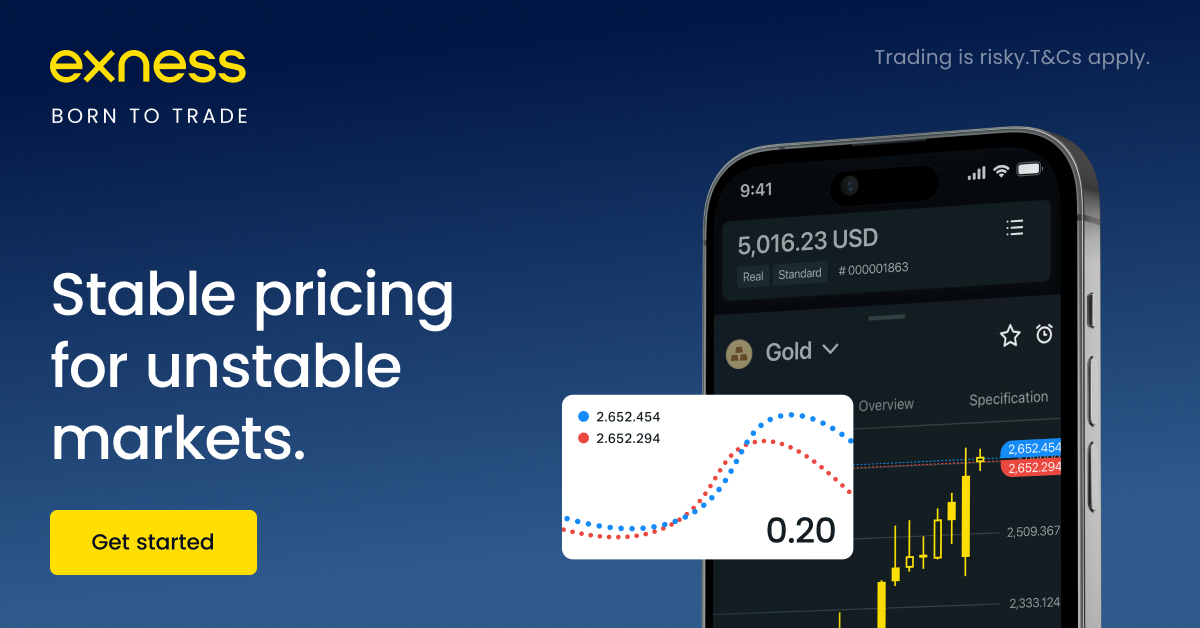
5 minute read
OctaFx Legal in India or not? Is OctaFX safe in India?
In this comprehensive analysis, we delve deep into OctaFX’s legal standing in India, scrutinize its safety, explore regulatory aspects, and equip traders with essential insights to make informed decisions. Let’s navigate the truth behind OctaFX’s operations and legitimacy in the Indian market.
🏅 3 Best Forex Brokers
1️⃣ Exness: Open Account Trading | Go to broker
2️⃣ XM: Open Account Trading | Go to broker
3️⃣ JustMarkets: Open Account Trading | Go to broker

🔍 What Is OctaFX?
Founded in 2011, OctaFX is an online trading platform specializing in forex, CFDs, cryptocurrencies, and commodities. Known for competitive spreads, significant leverage, and user-friendly platforms, OctaFX serves millions of clients worldwide. But here’s the key question for Indian traders: is it legal or regulated in India?
🧭 Regulatory Landscape in India
Regulator: The Reserve Bank of India (RBI)
The RBI oversees foreign exchange (forex) transactions and imposes regulations under FEMA (Foreign Exchange Management Act). Indian residents are allowed to engage in forex trading only under strict conditions:
Currency pairs: INR‑based pairs are off-limits; only cross-currency pairs like EUR/USD are permitted via authorized dealers.
Authorized dealers: Only RBI-approved banks/brokers can facilitate such trades for Indian residents.
RBI’s Position on Offshore Brokers
Over the years, the RBI and SEBI (Securities and Exchange Board of India) have issued circulars barring unauthorized overseas forex trading via digital platforms. Many offshore brokers operate from outside India — not registered with RBI/SEBI — which places them in a gray zone.
⚖️ Is OctaFX Legit?
1. Offshore Entity
OctaFX is headquartered in St. Vincent & the Grenadines, and it’s not registered in India.
It is unregulated by Indian authorities, meaning Indian residents use it via offshore accounts.
2. International Regulation
OctaFX holds a license in St. Vincent & the Grenadines.
It does not hold EU, UK, or US regulatory licenses, which means safeguards common in major jurisdictions (like client fund segregation or compensation schemes) may not fully apply.
🚦 Is It Legal for Indians to Trade with OctaFX?
Allowed but Restricted
Indian citizens are allowed, under FEMA, to trade forex for speculation using cross-currency pairs via Liberalized Remittance Scheme (LRS).
This legal route works only when using authorized dealers such as regulated Indian brokers.
Offshore platforms like OctaFX operate outside the legal ecosystem, and while enforcement has been lax, trading via them remains technically unauthorized.
Enforcement & Risk
Reserve Bank of India has issued warnings – notably the November 2018 circular – against unauthorized forex platforms.
However, decisive enforcement action against retail users hasn’t occurred broadly, though banks may decline overseas forex remittances to such platforms.
🛡️ Is OctaFX Safe for Indian Users?
Key Factors to Consider
1. Fund Security & Segregation
OctaFX holds accounts offshore; funds are not under Indian jurisdiction.
Without local regulation, client fund safety relies on the broker’s internal controls and reputation.
2. Data Privacy
No compliance with the Indian Personal Data Protection Bill yet, which means user data sits under OctaFX’s existing legal policies in its operating countries.
For tech-savvy traders, this may raise concerns around cross-border data and privacy enforcement.
3. Withdrawal Process
Withdrawals from offshore platforms are processed via bank wire or e‑wallets.
Indian banks may flag or delay such transfers due to AML/KYC rules or lack of clarity on the source of funds.
4. Redress & Complaints
In case of disputes or fund issues, there is no local consumer protection.
You may need to pursue resolution via distant jurisdictions—a costly, complex, and time-consuming process.

🌟 Weighing the Pros and Cons
✅ Advantages of OctaFX
Tight spreads & low trading fees make it attractive for active traders.
High leverage and advanced tools/platforms (MT4, MT5, proprietary mobile/web apps).
Promotions & bonus programs often exceed what local brokers offer.
❌ Disadvantages and Risks
Lack of local regulatory oversight means lower fund protection.
Remittance complications and possible bank issues.
No local dispute resolution or government backing.
Regulatory risk: If RBI or SEBI were to clamp down, you may lose withdrawal access or be forced to stop trading.
🧠 Smart Tips for Indian Traders Considering OctaFX
Use Authorized Channels FirstPrioritize RBI-regulated Indian brokers for legal safety and remittance convenience.
If Going Offshore
Limit your exposure and weed out middlemen. Use LRS-compliant methods for transferring funds.
Maintain detailed records for tax and banking purposes.
Test withdrawals with small amounts first to verify bank processing.
Understand the platformStudy margin requirements, risk controls, and trading policies thoroughly. Avoid trading with high leverage if you don’t fully understand the risks.
Protect Yourself
Keep KYC documents, bank transfer receipts, and chat/email transcripts.
Trade amounts you can afford to lose — in case redress options fail.
Use two‑factor authentication to secure your account.
Stay UpdatedKeep track of policy updates from RBI and SEBI. A sudden regulatory shift can impact offshore trading significantly.

Read more:
what is funded account in forex
which forex card is best for students in usa
who is the best forex teacher on youtube
how much is 100 000 units in forex
🏁 Final Verdict
Legality: OctaFX does not operate under Indian law, making it a semi-legal, offshore option. It’s allowed under FEMA’s LRS — technically — but lacks bank permission and Indian regulation.
Safety: While OctaFX has a global reputation and offers quality tools, it lacks the local safeguards Indian traders enjoy. Your funds and rights are unprotected under Indian law.
Bottom Line:You can trade on OctaFX, but you’re doing so in a grey zone — risking regulatory barriers, remittance issues, and minimal consumer protection. Always compare with regulated Indian brokers, manage risk carefully, and prepare for potential hurdles when trading with offshore platforms.










